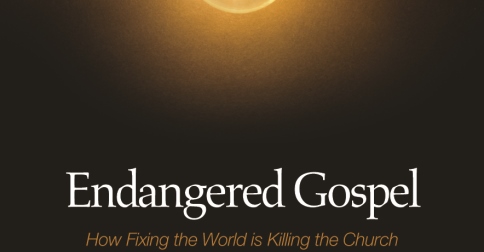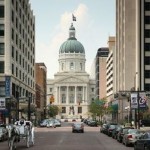“What is Slow Church?” This question is one that I’ve been getting quite a bit recently. I’m always at a bit of a loss to answer, however, because so many things are swirling through my head. Over the coming months, John Pattison and I will facilitate a conversation here that will explore what we mean by Slow Church, and what that might look like in a variety of different church contexts. But a conversation has to begin somewhere, so let me set out a few thoughts to get us started.
On the most basic level, Slow Church is a conversation between Christianity of the early twenty-first century and the Slow philosophy (particularly Slow Food, but also Slow Cities, Slow Money, etc). As John has described in his recent article in Neue Magazine “Why We Need A Slow Church Movement,” there are many people in vastly different church contexts who are finding that the time is ripe for such a conversation. For those who are not familiar, the Slow philosophy began in Italy in reaction to the industrialization and breakneck pace of Modern, fast-food culture. Slow Food International has been one of the main driving forces in the local food movement, urging humanity seek the common good by minimizing the distance our food travels from farm to table, and by seeing the table as one of the primary places in which local culture is nurtured in the sharing of food, stories and lives.
However, on another level, we have found the language and philosophy of the Slow movement, to be extraordinarily pertinent to the timely task of calling churches to be communities that share a deep and vibrant life together in the midst of the increasing fragmentation of our times. Such churches will be formed by an incarnational theology that is fundamentally local and strongly ecclesiological. As Gerhard Lohfink has poignantly argued in books like Jesus and Community and Does God Need the Church?, God’s mission of reconciling all creation is centered on the work of calling and gathering a people, who will bear witness in their life together to the reconciling work of God in Christ. The biblical narrative reminds us that God’s timeframes are not our timeframes, a key point that led Japanese theologian Kosuke Koyama to speak of our God as the “Three-Mile-An-Hour God.” God’s plan for reconciliation by gathering and growing a people doesn’t rate too well in most people’s estimation by modern standards of efficiency. John and I intentionally use, therefore, the language of Slow Church – and not merely Slow Christianity – because the slowness to which we are called is rooted in God’s work of building a people, and ultimately in the slowness of God.
The three cardinal virtues of Slow Food Movement are good, clean and fair. With a little clarification and minimal interpolation, we believe that these virtues – which we present as Ethics, Ecology and Economy – provide keen guidance for our churches as we seek to slow down and nurture a life together that is faithful to the biblical story of God’s reconciling all creation. Our Ethics are crucial as we come to realize that ends cannot be separated from means, and thus begin to evaluate our practices to see whether they fit our stated ends. As we reflect on the biblical idea that God is reconciling all creation, we become aware that we are part of an interdependent creation and that our call to share life together must be interpreted within the contours of a particular, local ecology. Thirdly, our churches must be attentive to the “Great Economy” of God – a phrase that Wendell Berry has coined for helping us to think about the Kingdom of God. Despite the mythology of all major economic systems, we do not live in a world of scarcity, but rather in one that overflows with God’s super-abundance. In such a world, we must learn to be communities whose economy is built on the foundations of gratitude and generosity.
Our call to bear witness to God’s reconciliation of all things can seem too vast and overwhelming, so where do we begin? John Howard Yoder has suggested — in his little book Body Politics — that we begin at the dinner table, sharing real meals together Eucharistically as local church communities, a practice that if we will allow ourselves to reflect on how and why we do it is deeply ethical, ecological and economic. (Yoder’s suggestion also lies at the heart of Norman Wirzba’s profound new book Food and Faith). The shape of our life together, Yoder argues, will ripple outward from the table and from the conversations that we have there – as it did in the early church community in Jerusalem (Acts 2-4). God is the one who is working reconciliation in the world, our job is to discern together how to embody this great news within the particularities of our specific times and places, a task at the heart of which lies conversation, and the dinnertable is a key place at which such conversations could unfold. There’s certainly a place for reflection and conversation on blogs, at conferences and in other venues, but the most important conversation about Slow Church is the one we have with our sisters and brothers of our local church communities. We hope that the reflections we offer here will be as challenging and energizing for you and your church community as they have been for our churches!











